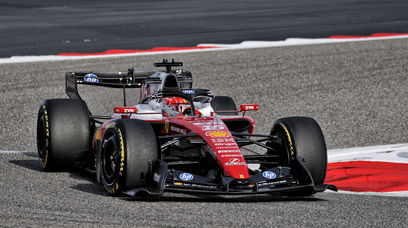Honda have detailed how a change to the 2022 Formula 1 power unit regulations led to their reliability being "severely compromised" during the season. At the opening round in Bahrain both Max Verstappen and Sergio Perez failed to finish due to a fuel pump problem, which manifested due to the new E10 fuel mixture that was introduced at the start of the year. While this was not a direct issue with the Honda engine, the switch to E10 fuels made every power unit manufacturer on the grid prioritise performance over reliability to recover the performance loss from the previous fuel mixture. Tetsushi Kakuda, Honda chief engineer and F1 project leader, says this switch led to "several problems" surfacing during the 2022 season. "We made every effort to recover the performance loss due to the E10 fuel introduced by the regulation change," Kakuda commented to media, including RacingNews365.com . "As a result, the internal load to the engine increased significantly compared to the previous year and the reliability was severely compromised. "Several problems surfaced during the 2022 season and we have been working to address those problems for this season."
Honda: Fixing reliability could give more strategic options for Red Bull
While Honda's reliability throughout the 2022 season was not as bulletproof as the Mercedes, it still enabled Verstappen to utilise their full potential together with Red Bull and defend his World Championship. But Kakuda says there were still problems they needed to solve ahead of 2023 on the reliability front, which could lead to better strategic options in how they make use of the power units throughout the season. "Improving the reliability is not going to help improve the PU itself, and also by regulation there's only a certain type of development we can do with a power improvement," explained Kakuda. "If reliability can be improved, this is going to help with giving more options from a strategic perspective and how you can use the power units. "So that is why we're going to be working in collaboration with the team to adopt the best strategy for the PU."
Honda: We are fully prepared for pre-season testing
Honda also say they have made improvements to their energy management software and electrification deployment, which they believe had an advantage in 2022. "In addition to improving reliability, we've deepened our understanding of our PU to further optimise the control and energy management," explained Kakuda. "We have also matured ourselves in the electrification technologies, where we had a clear advantage last year, especially the MGU-K deployment. "We have continued to work with our suppliers to improve improve the precision of parts in terms of manufacturing, quality inspection, governance, as well as the precision power unit assembly." Even though most of the staff at Honda Racing Corporation's (HRC) Headquarters in Sakura were reassigned to non-racing areas to meet carbon neutrality goals, Kakuda believes they are "fully prepared" ahead of pre-season testing in Bahrain on 23-25 February. He added: "HRC Sakura has been making an all-out effort for this coming seasons, so we believe we are fully prepared for the pre-season tests starting this week."
Most read







